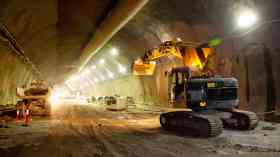Sue Robb of 4Children talks to Julie Laughton and Alison Britton from the Department for Education about the role of childminders in delivering the 30 hours free entitlement.
‘Preferendums’ could lead to better public deliberation

New research from Newcastle University has claimed that referendums that use a preferential ballot system can potentially lead to better public deliberation and allow voters on all sides to feel that their views have been taken into account.
The use of referendums has increased in recent years around the world, most notably for the UK’s withdrawal from the European Union. Although they allow for a direct expression of popular consent, they are often seen as problematic because they do not always take into account the views of smaller groups.
So, the study, co-produced with the Australian National University, claims that referendums that offer a binary choice do not promote deliberation and, as a consequence, may actually harden existing attitudes. Such votes also fail to capture the complexity of constitutional issues and almost always discount important aspects of popular opinion.
The experts argue that a ‘preferendum’, that allows voters to select a range of different options in order of their preference, with the least popular option dropping out of the running in each round, could encourage greater attention to the complexity of the issues and open up space for improved deliberation. While winning option would still need to cross the majority threshold, crude majoritarianism would be avoided.
Such preferential or ‘run-off’ votes are already widely used around the world for elections to public office and the research team believe could also be used for referendums in deeply divided societies.
Ian O’Flynn, senior lecturer in Political Theory at the Newcastle University, said: “Referendums are not a panacea and can’t solve all the problems that deeply divided societies face, but if well designed they can play a crucial role in helping a divided society move on.
“History gives us plenty of examples where referendums that offer a binary choice have been disastrous. If a referendum is not sensitively designed to encourage deliberation, people may end up feeling that their views and opinions count for nothing and may withhold their consent – with all the ramifications for democracy that might have.”
Company Focus
Located in Bromley, Japanese Knotweed Eradication Ltd has been providing solutions in the treatment and removal of Japanese Knotweed (Fallopia Japonica) for over a decade. During this time we have mastered a repertoire of methods, from herbicidal treatments to landscaping solutions, tailored to address the unique challenges our clients face with this pervasive weed.
Event Diary
UKREiiF has quickly become a must-attend in the industry calendar for Government departments and local authorities.
The multi-award-winning UK Construction Week (UKCW), is the UK’s biggest trade event for the built environment that connects the whole supply chain to be the catalyst for growth and positive change in the industry.
Supplier Profiles
Geo Energy
At GeoEnergy Design, we're on a mission to disrupt the traditional way heating and cooling ha
Latest Features
Professor Harith Alani, director of the Knowledge Management Institute at the Open University explains how AI can be used for good and bad.
Alex Lawrence, head of health & social care, techUK sets out techUK’s Five Point Plan for CareTech.

















